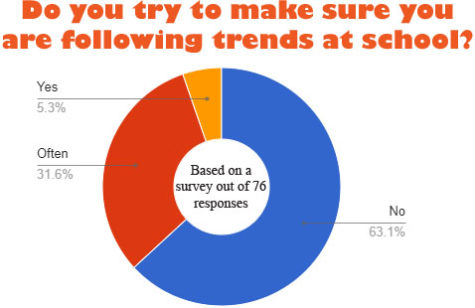Teen moms feel judged
March 30, 2023
Walking through the grocery store aisle a teen mom is holding her baby and scouring the baby formula section. A bunch of middle-aged women are staring and whispering at the young mom.
The stigma toward teenage pregnancy has made teenagers feel pressured to act a certain way to fit in.
According to a Fielder survey, students feel that judgment and stigma is more associated with the mother.
“I feel like it [the stigma] is an object to bring women down and make them feel alone and discriminated against,” Jakob Karanosky, freshman, said.
There are a lot of thoughts about teenage fathers’ reactions. Often the father doesn’t stay, but Izreal Roque, senior, is dedicated to his daughter and would do anything for her. He made the choice to better himself for his daughter.
“I stopped doing all the bad things and matured,” Roque said. He feels fatherhood made him a better person. Additionally, he was able to better himself for his daughter because he didn’t want her to follow his path. He felt like he couldn’t hang out with his friends anymore because of the differences in their lives.
According to a recent Fielder survey of 78 students, 47.4% feel that the parents should keep the baby.
“It’s their choice if they decide to have a kid at that age. Though having a kid at this age is going to be really hard mentally and physically. And if they do decide on having a kid, they have to prepare for public feedback. A lot of people are going to look down on them,” Kaylee Koziorynsky, junior, said. The health class used to bring in teen parents or young parents to tell students about their life.
“They’ll say ‘I love my child but…’” Christina Florence, health teacher, said. There are always situations people have to go through and those parents have to think about their children too. There are always negatives to a choice.
It is common for teenagers with children to be seen as irresponsible when in reality some just hadn’t had the right resources. The Illinois state board of education has changed the sexual education curriculum in 2022. This is the first semester it has been taught. There are seven topic strands of the curriculum including consent and healthy relationships, anatomy and physiology, puberty and adolescence, sexual development, gender identity and expression, sexual orientation and identity, sexual health, and interpersonal violence. This is an abstinence-based course in the program. This course helps students find their own resources on the internet and use them to their advantage.
Parents are able to opt out of the information for their kids and the teacher can talk to them about an individual course path to follow certain precautions.
Teen pregnancy is a choice made by both parties whether or not they keep the baby. The negative stigma directed towards people who decide to keep the baby can affect the parent as a whole.
“I knew what I had to do was right,” Roque said.








